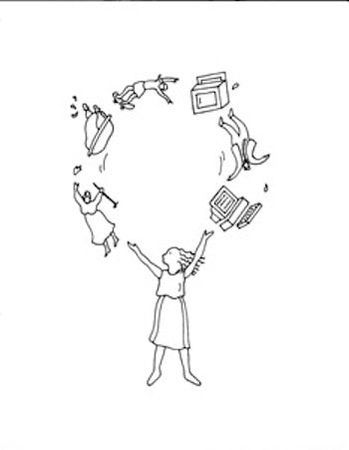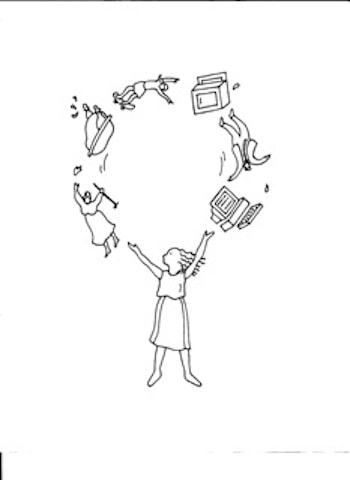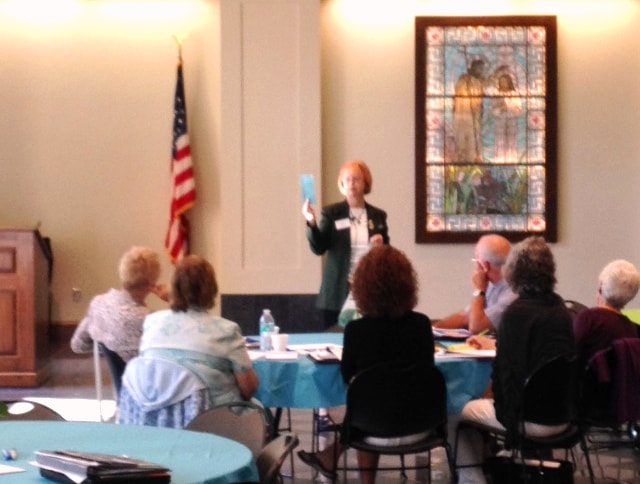|
One of my patients recently complained. I asked her what her doctor said. She told me she had forgotten to tell her doctor. She told me that she had become used to the problem and “accepted” it. Many senior-related articles advise writing down symptoms and questions before visiting the doctor. Good advice; as far as it goes. It’s the stuff that falls off the radar that could be the most important. The doctor needs information from the patient or the patient’s advocate. That information is the basis to decide which questions/tests to pursue.
What kind of information doesn’t get to the doctor?
0 Comments
When someone advises you to, “take care of yourself”; that doesn’t explain how. Elder caregiving is so new that some methods are still under development. However, we know some things that work and some to avoid. Self care does not mean a day at the spa. For many caregivers such a day would be out of reach financially or out of time to devote to a spa. Therefore, plan to care for yourself in moments, not hours. Think about your life like your heart; it beats all the time. Actually your heart takes a tiny rest between each beat that allows it keep going. When you care for yourself in moments, you pause and continue.
Try these ideas. Put up a sign saying, I NEED A MOMENT, to remind yourself to pause. Put up other signs family can see to remind them that you might need a moment before you can respond to their requests. Is the person in need bleeding or on fire? If the answer is no, then it’s OK for you to take a moment. It’s OK to train your family to allow you to do so. It’s OK for you to ignore repeated pleas for your attention (for a moment). Training takes time but you’re worth it. What do you do in that moment? Be sure you are safe. If you’re up on a ladder, get down first. Focus on something blank, like a wall or the ceiling. Breathe, deeply, through your nose, hold and count to 3 or 4. Let your breath out through your mouth but slowly; 1-2-3-4. Now, if you can afford the time, try looking at something peaceful; out a window, at a picture, or at some memento that is meaningful to you. Breathe again the same way. Many caregivers respond with; “I don’t have time to …” You’re right, time is at a premium. Most caregivers find themselves in that role at the same point they also have the house-the spouse-the kids-the job-the pets and MOM! You have a lot on your plate. Sometimes caregivers believe they can wait until they have time. By waiting until later, the damage from lack of self care will have done its worst. Undoing damage is much harder. The best intervention is prevention. Prevention comes in bits of time you claim now. Suppose you actually have a whole hour to yourself. It’s a gift! Ask yourself, “What refreshes me?” Notice I didn’t say what can I eat nor where can I sit down? Some caregivers eat to cope with stress. We need nourishment but not that way. Rhythmic movement, like walking, can help us feel less worn and is surprisingly refreshing. If you can’t go far; walk around the house or around the block. If you live in an apartment building, walk in the hall. “Go get the mail”, that errand will buy you a few minutes. Try to set a self care routine just as you have set other routines with child care or at work. Routines help us get things done without doing us in. Some things to avoid include sugar and alcohol. The stress hormone, Cortisol, takes sugar and converts it into weight around your middle. Sugar may not be sweet; baked goods convert to sugar. As part of a balanced meal they’re fine; as a snack, not so much. Large amounts of food can have a numbing effect; like a Thanksgiving dinner. When we feel numb, our minds seem to turn off. When you see you have time and turn to the refrigerator; ask yourself why are you eating? In a similar way, alcohol can create a numb feeling. We believe we’re relaxed but a caregiver’s immune system is more vulnerable and needs extra protection that alcohol doesn’t provide. Alcohol is also a depressant, which won’t help caregivers. So how does one “turn off” the constant “list-making” that goes on in the caregiver’s mind? Try other things. Try relaxing teas like Passion Flower, Elder Flower or Chamomile. Try playing some relaxing music that’s meaningful to you. Try a rhythmic movement “dance” (try it with your partner). Try a hot shower or better, a hot bath. Try placing essential oil of lavender in your bedroom. All of these set the stage for relaxation. Develop your own mediation or routine to think about at bed time instead of a to-do list. There are also tapes available. So self care comes in moments you claim as your own. To learn more ways to cope, take our course: Preparing to Parent Your Parent. Caregivers experience a jolt when confronted by their bosses about changes in their job performance. For some caregivers, these issues are the first sign that something has to change: now! Perhaps they didn’t realize that they were regularly tardy or missed important meetings. Did they know that they also missed important details in doing the job? Your boss noticed.
Most bosses don’t know what to do to help the caregiver with those issues. They just want employees back on track at work. Senior Sidekicks knows how to help. Take our course Preparing to Parent Your Parent to get back on the job track. Why take this course; because you must handle caregiving differently. In just 5 classes, you will learn ways to cope with and better manage caregiving. Senior Sidekicks brings this course to you; at your church or club. Senior Sidekicks teaches Preparing to Parent Your Parent at your convenience; evenings, weekends, lunch hours or days. One low price gives you 5 classes, a manual, and chance to bring your significant other for half price! This course shows your boss that you’re tackling this problem and wrestling it to the ground! Call Senior Sidekicks today at 217-787-5866. |
Author "A Senior Moment" is written by Ms. Sara Lieber, owner of Senior Sidekicks. Ms. Lieber has over 30 years of experience in senior care. Archives
March 2024
Categories
All
|




 RSS Feed
RSS Feed